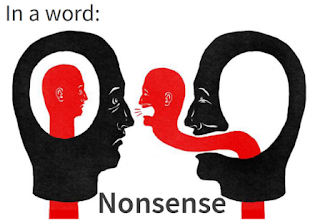The Campaign Against Foreign Control of Aotearoa (CAFCA) has had a relationship with the Overseas Investment Office (and the Overseas Investment Commission before that) dating back to the 1980s, when we waged a five year long campaign just to get any access to its data at all
With almost no exceptions the OIO always withholds some Decisions from its monthly batch (in some cases it is the whole Decision; in the great majority it is just the “consideration” i.e. how much was paid). CAFCA routinely appeal all such deletions to the OIO; once again, with very few exceptions, it upholds the deletions. We then appeal those to the Ombudsman, usually three months worth at a time. Those had been piling up and we had received no verdicts from the Ombudsman on any of our appeals for several years. In 2015 the Office of the Ombudsman decided that it wanted to meet with CAFCA (which had put in 100 appeals) and which was tying up its valuable time and resources.
 We duly met with Ombudsman Professor Ron Paterson in Christchurch, a year ago. He agreed to urge the OIO to release the “considerations” of a large backlog of deleted Decisions which we had appealed. The OIO has subsequently released to us a great wodge of previously withheld Decisions, complete with the considerations, spanning the period 2012-14 inclusive.
We duly met with Ombudsman Professor Ron Paterson in Christchurch, a year ago. He agreed to urge the OIO to release the “considerations” of a large backlog of deleted Decisions which we had appealed. The OIO has subsequently released to us a great wodge of previously withheld Decisions, complete with the considerations, spanning the period 2012-14 inclusive.To be precise, the OIO has released to us 88 Decisions which had previously had material withheld; it has decided to withhold four Decisions indefinitely, and will review another 16 after a specified period of time (it has told us when that will happen, in every case).
More significantly, the OIO has now decided to institute a whole new regime relating to the cloak of secrecy thrown over foreign investment applications to it (the new regime actually started as from May 2015 but we have only just been informed of it by Professor Paterson).
To quote his letter to us: “If the OIO determines that there are good grounds under the Official Information Act for withholding the information, the applicant is advised that the information will be withheld for a period of one year or until such time as the information becomes public (whichever is earlier). If the applicant considers that the information should remain confidential beyond the specified expiry date, the onus is on the applicant to write to the OIO explaining why that is the case. The OIO will then reconsider the grounds for withholding”.
“With these actions, the OIO has effectively changed its starting position with respect to information that is deemed confidential when a Decision summary is released – that is, confidentiality is maintained for a specified period rather than indefinitely. The onus is on applicants to contact the OIO if they consider that there are good grounds under the Official Information Act to withhold the information after the expiry of the specified period”.
This is a definite improvement on the OIO’s position up until now (i.e. throwing an indefinite cloak of secrecy over all or part of its monthly Decisions).
CAFCA thanks Professor Paterson for his work on this. And we pat ourselves on the back for continuing to hold to account this very publicity-shy, rubber stamping part of the State’s foreign investment “oversight” regime.
CAFCA is fundamentally opposed to the whole “come on in and help yourselves” message to foreign investors from Governments led by both major parties.
That being the case, the Overseas Investment Office has not seen the last of us just yet. We will continue to appeal most Decisions that are fully or partly withheld.









